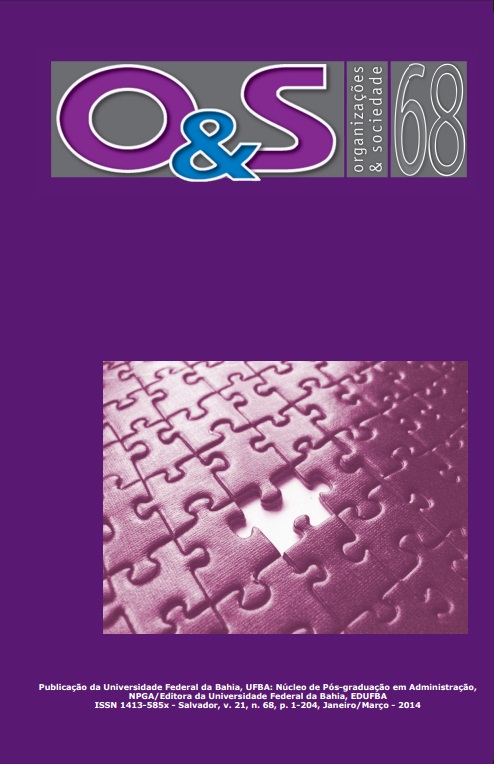The formation of children’s consumption habits : a critical analysis of the Status Consumption Theory applied to Brazilian high and low social class es
Keywords:
Formação dos hábitos de consumo. Consumidor infantil. Classes sociais. Teoria de Consumo de Status. Países em desenvolvimento.Abstract
Grounded on Status Consumption Theory (SCT) approach, this article analyzes how the consumption habits of children of high and low Brazilian social classes are constituted, it also criticizes the Global Trickle-down Model (GTDM) and analyzes the precision of the recent theoretical modifications suggested by Üstüner and Holt (2010) concerning the inadequacy of SCT to the developing countries. We carried on a theoretical-empirical research based on 36 in-depth interviews with children between 9 and 12 years old, of high or low classes. Based on a content analysis, we present and discuss the results through the following analytical categories: influence agents, relation with the universe of possibilities and impossibilities of each class, and social distinction. To conclude, we compare the TCS concepts with the results found in the context of high and low Brazilian classes and evaluate the adequacy of GTDM to this context. The research’s main finding are that peers have greater influence on the habits of children of higher classes; the media has a different impact depending of the child socioeconomic position; and, against previous theory, consumer desires of lower class children are not prisoned by their existence conditions.
Downloads
Downloads
Published
How to Cite
Issue
Section
License
This work is licensed under a Creative Commons Attribution 4.0 License.
The O&S adopts a Creative Commons Attributions License 4.0 in all published works, except where specifically indicated by copyright holders.






